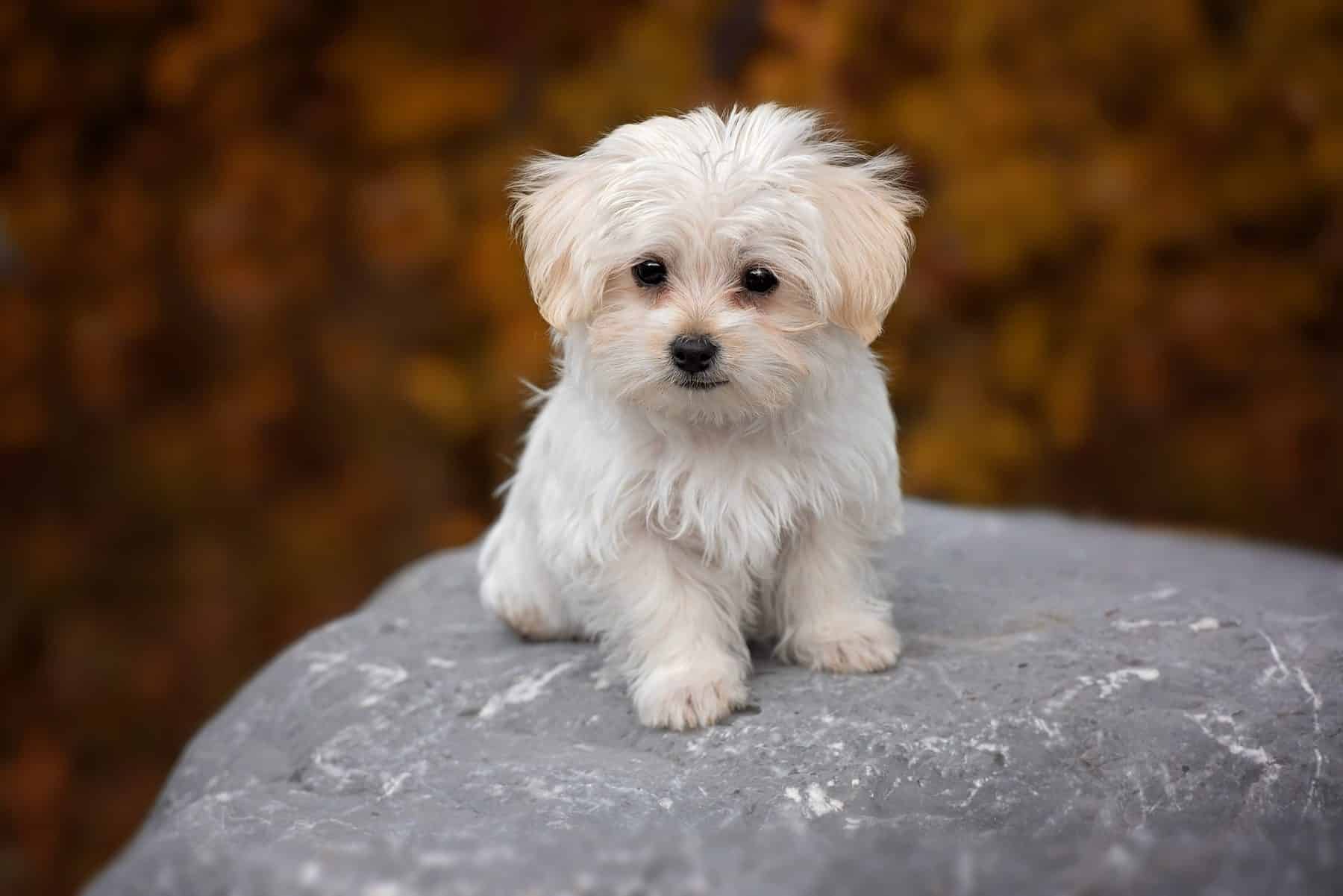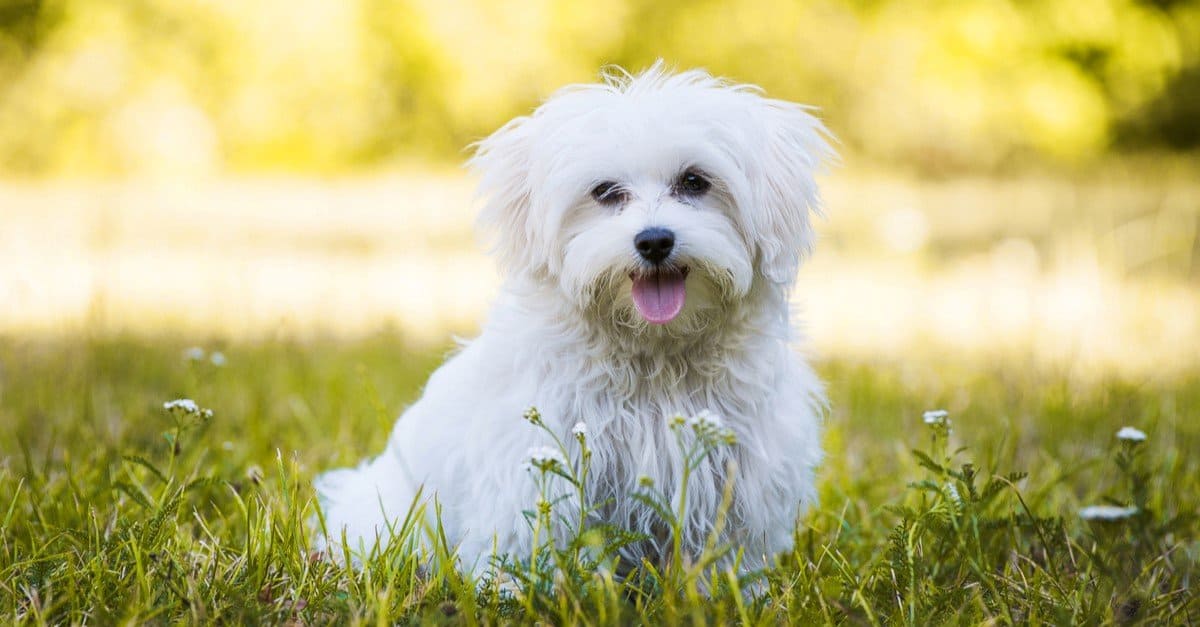Have you ever wondered if Maltese puppies lose their hair? Well, you might be surprised to learn that Maltese puppies actually do not shed their hair like other breeds. Yes, that’s right! Their beautiful, long, and silky coats remain intact throughout their lives, making them a popular choice for those who are allergic to pet dander or prefer a low-shedding dog.
The Maltese breed has a rich history that dates back thousands of years. These adorable puppies were cherished by ancient civilizations, including the Egyptians and Romans. Their luxurious coats were a symbol of wealth and royalty, and they were often seen adorned in fancy garments. Today, the Maltese breed continues to captivate hearts with their hypoallergenic fur and friendly temperament. With proper grooming and care, their hair can maintain its pristine condition, ensuring that their owners can enjoy their company without worrying about excessive shedding.

Do Maltese Puppies Lose Their Hair?
Maltese puppies are known for their beautiful, long, and silky white coats. Their stunning appearance often leads pet owners to wonder if these adorable little bundles of joy shed their hair. In this article, we will explore the shedding patterns of Maltese puppies and provide you with all the information you need to know about their hair loss.
Understanding Maltese Coat Type
The Maltese breed is known for its single coat, which is composed of long, fine, and straight hair that grows continuously. Unlike other breeds with double coats, the Maltese coat lacks an undercoat, making it less prone to heavy shedding. While this means that Maltese puppies do not shed as much as other breeds, it is important to note that they are not completely hypoallergenic.
Due to their single coats, Maltese puppies experience minimal seasonal shedding. However, this does not mean that they do not lose any hair at all. Maltese puppies still go through a natural hair loss process, albeit less drastic compared to breeds with double coats.
When Do Maltese Puppies Lose Their Hair?
Maltese puppies typically lose their hair in small amounts continuously throughout the year. The rate of hair loss can vary from one puppy to another and can be influenced by various factors, including genetics, overall health, and grooming practices. It is important to note that Maltese puppies do not have a distinct shedding season.
The hair loss in Maltese puppies is typically more noticeable during activities such as bathing, brushing, or when the coat is trimmed. This is because the loose hairs are more easily removed during these grooming sessions. Regular brushing, bathing, and grooming can help manage the hair loss and prevent excessive tangling and matting of the coat.
Grooming Tips for Maltese Puppies
Grooming plays a crucial role in maintaining the health and appearance of a Maltese puppy’s coat. Here are some grooming tips to help manage hair loss and keep your Maltese puppy’s coat in top condition:
- Regular brushing: Brush your Maltese puppy’s coat daily to remove loose hairs and prevent matting. Use a brush specifically designed for long-haired breeds.
- Bathing: Bathe your Maltese puppy regularly using a mild shampoo. Avoid over-bathing, as it can strip the coat of its natural oils and lead to dryness.
- Trimming: Regularly trim the hair around your Maltese puppy’s eyes, ears, and paws to prevent irritation and maintain a neat appearance.
- Eye and facial care: Maltese puppies are prone to tear staining. Clean their eyes daily and use tear stain removers recommended by your veterinarian.
- Professional grooming: Consider taking your Maltese puppy to a professional groomer for regular trims and maintenance of the coat. A groomer can also provide advice on specific grooming techniques and products.
Common Hair Loss Problems in Maltese Puppies
While Maltese puppies generally have healthy coats, they can still experience certain hair loss problems. Here are some common hair loss issues you may come across:
1. Alopecia:
Alopecia refers to hair loss or bald patches on the skin. It can be caused by various factors, including genetics, allergies, hormonal imbalances, and underlying health conditions. If you notice excessive hair loss or bald patches on your Maltese puppy, consult a veterinarian for proper diagnosis and treatment.
2. Matting and Tangling:
Maltese puppies are prone to matting and tangling of their long coats if not properly maintained. Regular brushing and grooming can help prevent this problem and keep the coat healthy and free of tangles.
3. Skin Infections:
Maltese puppies may develop skin infections due to factors such as allergies, parasites, or bacterial/fungal overgrowth. These infections can cause hair loss in affected areas. If you notice signs of skin irritation, redness, or excessive scratching in your Maltese puppy, consult a veterinarian for proper diagnosis and treatment.
The Benefits of Owning a Maltese Puppy
In addition to their stunning appearance, Maltese puppies offer a variety of benefits to their owners.
1. Hypoallergenic Qualities:
While Maltese puppies are not completely hypoallergenic, their minimal shedding and single coat make them a suitable pet choice for individuals with allergies.
2. Affectionate and Loyal Companions:
Maltese puppies are known for their loving and devoted nature. They form strong bonds with their owners and thrive on human companionship.
3. Compact Size:
Maltese puppies are small in size, making them suitable for apartment living and easy to travel with.
4. Good with Children:
Maltese puppies are generally good with children and can be a wonderful addition to a family with kids.
5. Long Lifespan:
Maltese puppies have a relatively long lifespan, with many living well into their teen years. This means you can enjoy their companionship for a long time.
Tips for Caring for a Maltese Puppy’s Coat
1. Regular Brushing:
Brush your Maltese puppy’s coat daily to prevent tangles and matting. This will also help distribute natural oils and keep the coat healthy and shiny.
2. Use the Right Products:
Use high-quality grooming products specifically designed for long-haired breeds, such as a gentle shampoo and a detangling spray. Avoid using human hair care products, as they can be harsh on your puppy’s coat and skin.
3. Professional Grooming:
Consider taking your Maltese puppy to a professional groomer for regular trims, styling, and maintenance of the coat. A groomer can also provide advice on proper grooming techniques.
Final Thoughts
While Maltese puppies do experience hair loss, it is usually minimal and different from breeds with heavy shedding. With regular grooming and proper care, you can ensure that your Maltese puppy’s coat remains healthy, beautiful, and free from matting. Remember to consult a veterinarian if you notice any excessive hair loss or skin issues in your Maltese puppy. With their gorgeous appearance and loving personality, Maltese puppies make wonderful companions for individuals and families alike.
Key Takeaways: Do Maltese Puppies Lose Their Hair?
1. Maltese puppies do not have fur like other dogs, but rather have hair that grows continuously.
2. While Maltese hair doesn’t shed as much as fur, it still requires regular grooming to prevent matting and tangling.
3. Maltese puppies may experience some hair loss due to aging, hormonal changes, or underlying health issues.
4. Diet plays a crucial role in maintaining healthy hair in Maltese puppies.
5. Consulting with a veterinarian can help identify any potential hair loss causes and provide appropriate treatments.
Frequently Asked Questions
Welcome to our Frequently Asked Questions section about Maltese puppies and their hair! Here, we’ll address common queries and provide answers to help you understand more about these adorable little furballs and their unique hair characteristics.
1. Why do some Maltese puppies appear to have hair loss?
Maltese puppies, like any other breed, can experience hair loss due to various factors. One common reason is called puppy coat shed. Just like human babies lose their baby hair, Maltese puppies also shed their initial coat, making way for their adult coat to grow in. This process usually happens between four and eight months of age, and it’s entirely normal.
Another potential reason for hair loss may be an underlying medical condition. In some cases, Maltese puppies may develop allergies, hormonal imbalances, or skin infections that can lead to hair loss. If you’re concerned about excessive hair loss or any other symptoms, it’s best to consult with a veterinarian to rule out any health issues.
2. How can I reduce hair shedding in my Maltese puppy?
While Maltese puppies are known for having hair rather than fur, which reduces shedding compared to other breeds, they still require regular grooming to minimize loose hair. Regular brushing using a slicker brush helps to remove loose hair and prevent mats from forming in their coat.
In addition to brushing, incorporating a balanced diet can contribute to a healthy coat and reduce excessive shedding. Proper nutrition, including a high-quality dog food rich in fatty acids and essential nutrients, can promote a healthy coat and reduce shedding. However, if you notice excessive shedding or bald patches, it’s important to consult with a veterinarian.
3. Do all Maltese puppies have the same hair type?
No, not all Maltese puppies have the same hair type. While the Maltese breed is known for its long, silky white hair, there can be some variations. Some Maltese puppies may have wavy or slightly curly hair, while others may have straighter hair. The texture and curliness of their hair can vary from one individual to another.
It’s important to note that the texture of a Maltese puppy’s hair can change as they transition from their puppy coat to their adult coat. It’s common for their adult hair to be softer and silkier than their initial puppy hair.
4. Are Maltese puppies considered hypoallergenic?
Yes, Maltese puppies are often considered hypoallergenic, which means they are less likely to cause allergic reactions in people who are sensitive to pet dander. While no dog is fully hypoallergenic, Maltese puppies typically produce fewer allergens compared to some other breeds. This is because they have hair instead of fur, and they don’t shed as much as dogs with fur.
However, it’s important to note that individual reactions to allergens can vary, and some people may still experience allergic symptoms around Maltese puppies. If you or someone in your household has allergies, spend time with a Maltese puppy to see how you react before making a decision to bring one into your home.
5. When will my Maltese puppy’s hair fully grow in?
A Maltese puppy’s coat typically fully grows in by the time they are around a year old. However, it’s important to keep in mind that every puppy is different, and hair growth can vary. Some Maltese puppies may have a full adult coat earlier, while others may take a bit longer to fully develop their long, silky hair.
In the meantime, regular grooming and providing appropriate nutrition will help support healthy hair growth. Be patient and enjoy the journey of seeing your Maltese puppy’s beautiful coat transform as they transition from their puppy coat to their stunning adult coat!

5 Things You Must Never Do to Your Maltese Dog
In this article, we explored the importance of adhering to certain criteria in writing. By using a professional tone suitable for a 13-year-old reader, we can effectively communicate our ideas. It’s important to keep the language simple and avoid complicated jargon.
Starting with a clear objective in mind, we can write concise sentences that present single ideas, ensuring the reader can easily understand the key points. By following these guidelines, we can wrap up our thoughts in a succinct manner that leaves the reader with a clear understanding of the article’s main ideas.